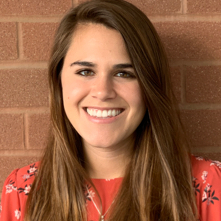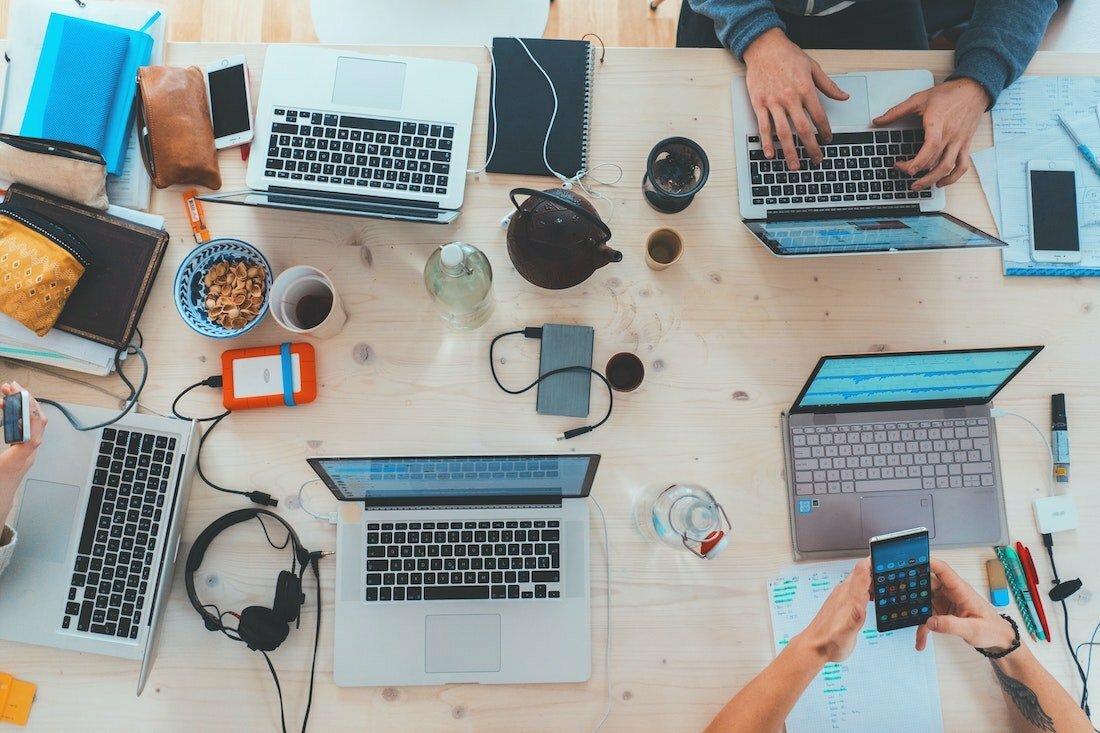Social Media and Eating Disorders: Does Social Media Cause Eating Disorders?
In this ever changing world with constant technological advancements, our reliance on phones and computers isn’t going anywhere anytime soon. With that comes increased usage of social media. Also, as I’m writing this, it’s the middle of quarantine and I’ve noticed I’m using social media much more often.
Social media certainly has its pros and cons. There are so many accounts out there that promote dieting and weight loss in some way shape or form. Following these accounts can increase negative body image, harmful comparisons, and food guilt.
BUT! I’m a firm believer social media can be super helpful for those in recovery, when it is used appropriately. This blog will highlight some ways to use social media to your advantage. I also created a handout, with my lovely colleague Bobbi Boteler, on social media tips. So be sure to check it out!
Keep reading to learn 11 tips on how to positively use social media in your eating disorder recovery:
1. Follow Recovery Centered Accounts
And Unfollow or mute anyone that makes you feel badly about yourself. This can include food bloggers, “influencers,” or even friends you often compare yourself to. I’d recommend to unfollow anyone on Tiktok or Instagram that talks about what they ate in a day, discusses home work outs, or centers their body, especially if it’s a smaller body. You can access the list Bobbi and I created of positive accounts by downloading the handout. You can also follow me! @courage.to.nourish. You can also access our Facebook page here.
2. Add Diversity to Your Feed
Be sure to follow a variety of folks coming from all different backgrounds, races, ethnicities, gender identities, body sizes…etc.
3. Consider Sharing Your Journey on Social Media
There is absolutely ZERO pressure to do this. Some people find this super therapeutic and helpful, others may find this too intimidating and unhelpful. It might feel freeing to be open about your experiences. You may even consider creating a private recovery account where you don’t have to share personal information but you can post about your recovery journey and follow only recovery oriented accounts.
4. Be Mindful of Time Spent on Social Media
I have time limits set for quite a few apps on my own cell phone (Instagram, Pinterest, snapchat and email). It can be so easy to scroll through as a procrastination tool or to have something to do with your hands. I personally allow myself an hour on instagram, 30 minutes on pinterest, 15 minutes on snap chat and 30 minutes on email. But you can set this up in whatever way you think is best! I’d recommend starting with a longer time limit and you can decrease from there.
5. Check in with Yourself
Check in around how you feel after you have been on social media for an extended period of time. If you are feeling inadequate and anxious, you are more than likely following people that are toxic for you. You likely need a break. Or to do some cleaning of your social media accounts and follow people who are more uplifting.
6. Unfollow Certain Individuals
Like models, “influencers” and celebrities, especially those that promote dieting and ideal beauty standards. And while you’re at it, unfollow (or mute) those who promote dieting of any kind. You have permission to unfollow any accounts that feel draining. Or accounts that make you feel badly about yourself.
7. Turn Off Notifications
I’ve found it really helpful to turn off notifications for my social media. So this way, I’m not checking it every time someone “likes” a photo or messages me. I can choose to go on as I please. And don’t feel a need to check every time my phone lights up.
8. Save Posts That Really Resonate With You
Save posts that really resonate with you so you can visit them on a tough day.
9. Send Posts to Your Team
Particularly posts that you thought were harmful to your RD or therapist, so you can talk about it in session. It can be helpful to discuss ways to reframe eating disorder or diet thoughts that pop up.
10. Make Sure Your Feed Has Healthy, Positive Role Models
These role models who can help you feel empowered, confident and balanced. See below for some of my favorite social media accounts.
11. Take Breaks from the Screen
This is something I’ve been trying to do more often! Again, writing this in the middle of quarantine and I’ve been spending 10+ hours a day staring at my computer or phone. See if you can take 10–15 minute breaks every so often throughout the day. I’ve noticed a difference as I’m doing this!
Social Media is not a place to have nuanced conversations
I personally have learned a lot about fat positivity, recovery, anti racism and body liberation through social media accounts. Many accounts on social media have challenged the way I see the world and I believe I am a better clinician and person for it. AND it’s important to keep in mind that social media is often its own little bubble. It’s not a place where we can have nuanced conversations – and life is nuanced. So, if you find yourself getting trapped in the black and whiteness of social media or find that you’re no longer benefitting from social media – take a break!
Final Thoughts on Social Media and Eating Disorders
Social media certainly has its pros and cons. By following the above 11 tips, I’m a believer social media can be super helpful for those in recovery. Social media and eating disorders don’t always have to be negatively correlated. To help you get started, below are some positive social media accounts to help you on your journey to eating disorder recovery.
What are your thoughts on social media and eating disorders?
Get Recovery from Your Eating Disorder
Courage to Nourish is a group of eating disorder specialized dietitians. We have in person locations in Alexandria, Virginia, Columbia, Maryland. and College Park, Maryland. We offer virtual services across the state of Virginia, Washington DC, Pennsylvania, and Colorado. We offer individual nutrition therapy. As well as support groups. We would love to guide you in building a better relationship with food.
Contact us for more information. And to schedule a discovery call. Also, sign up for our client or clinician newsletter!

Helping my clients cultivate meaningful connections and interests outside of their eating disorder is a true passion of mine. I like to think my clients and I are on a team to navigate recovery. I love working with high school and college students as well as athletes seeking to have a better relationship with exercise. I am a proud anti-diet dietitian and work with my clients through a Health At Every Size © and intuitive eating framework.


